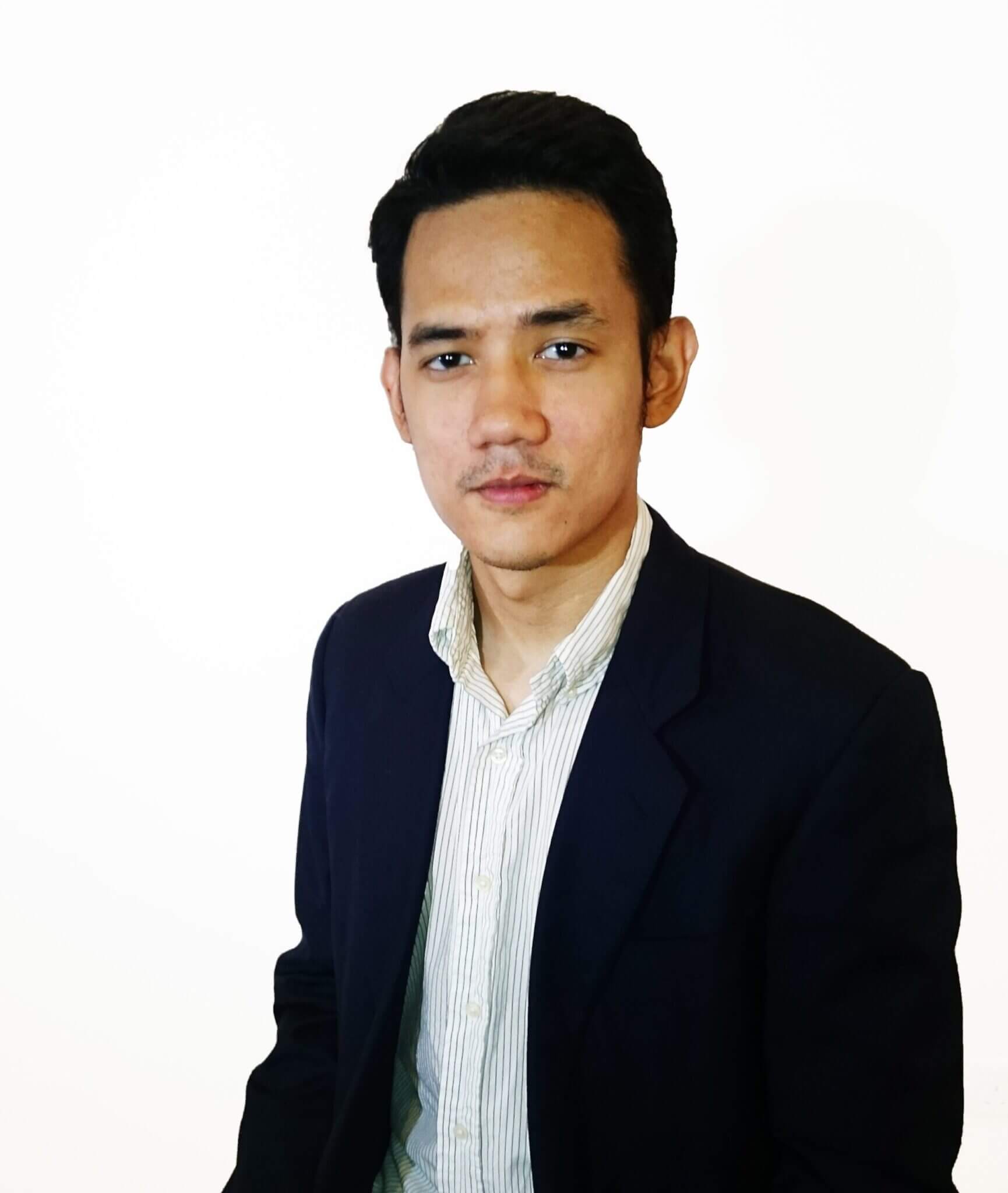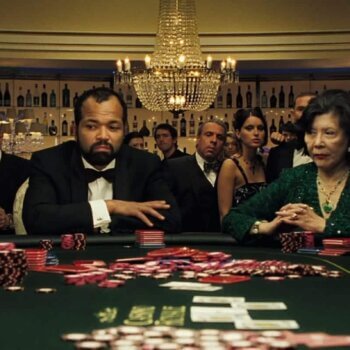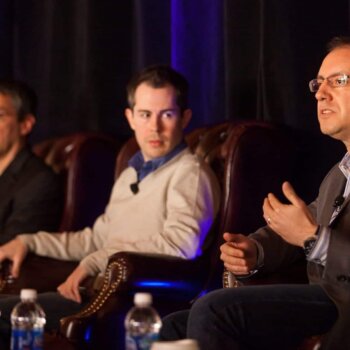Born and raised in Kuala Lumpur, Feisal Azizuddin was schooled in Sayfol International School and completed his O’Levels at Kolej Tuanku Ja’afar. The second of five siblings, Feisal was always the sporty one, physically active and loved to dabble in creative arts. Growing up, during family events it was Feisal’s brother and himself, who would often be seen going around with their ‘point and shoot’ cameras recording their relatives and then compiling them into home videos. He graduated from the International College of Music and became a certified audio engineer. Feisal also graduated with a Diploma in Music Production from Ocean Institute of Audio Technology. Feisal worked in a production house for a year, producing jingles and advertisements. After a year, his brother and Feisal decided to form their own media company, specialising in wedding videos, corporate videos and similar media content.
In your own words what is Kampung Quest all about?
Kampung Quest is Malaysia’s next big adventure! Imagine 10 Malaysians, plucked from diverse backgrounds, pitting them against one another, learning how to work together, to adapt and overcome challenges they’ve never faced before. Kampung Quest puts these ‘urbanites’ through unique challenges, called ‘quests’ that will test them mentally, surprise them socially and physically push them to their very limits.
How did you come up with the idea for the show?
My brother Iskander and I love the outdoors. As kids we longed for exciting adventures, which we could only read about in Enid Blyton books. We came up with the idea of what would happen if we took a handful of Malaysians, embarked them on an adventure of a lifetime, and gave them an experience they will surely not find anywhere else. To localize the theme, we infused culture and Malaysian elements so as to relate with our viewers.
Could you walk us through the process of actually starting the show?
Wow, it seems so long ago. I drafted the first concept of Kampung Quest in early 2013. This included creating the game mechanics, the challenges and also the type of contestants which we were looking for. Being an independent production, we knocked on over a hundred doors seeking sponsorship opportunities. Rejection only fueled up our desire to see the project through. Fortunately, we managed to secure Reebok as one of our sponsors which gave us a boost of morale as they believed in our show. Assembling the perfect film crew was crucial as they had to share the same understanding of what the project was all about. Identifying the filming location was very important as we needed a large controlled environment. The stars of our show, the urbanites, had to be carefully selected. We opened for auditions to the public and had roadshows in universities across Malaysia.
Did you encounter any particular difficulties during the beginning stages and if so, how did you guys overcome it?
Definitely. Funding was a huge obstacle we faced, especially for Season 1. We believed we had a good product so we dipped into our savings to produce the show. This meant that we had to cut costs and we did that by literally crafting our own challenges; sourcing the materials and fixing them all together. Manpower was also another obstacle. We did not have the spending power to hire a full-fledge film crew. We overcame this by roping in friends and formed a guerrilla film crew.
How have you been developing the show since the beginning (i.e. what’s the developmental direction) ?
We’re progressing well. For the second season, we tweaked the game mechanics and made the challenges bigger, in line with what we felt the viewers wanted. We also focused more on the urbanites’ personalities and the epic quests set before them. The overall theme has shifted to a darker, more thrilling adventure experience for the viewers. Kampung Quest Season 2 will feature a Hollywood-esque soundtrack by seasoned composer Phil Larson, from the United States.
What kind of reception does Kampung Quest receive?
We were very pleased with the response from the first season. It was aired online and also broadcasted on HyppTV in October 2014. We managed to lay the groundwork of which we could build upon with many seasons to come. The good reception we received encouraged us to proceed with a second season of Kampung Quest.
Do you face a lot of competition in this industry? How is your show different from others?
We do. Everyone is vying for the attention of the 18-30 audience and being a smaller media company, it is tough to get the word out for our show. On a positive note, there aren’t very many shows in Malaysia that are like Kampung Quest. We’re different than Survivor and Amazing Race, but more like a hybrid with similar elements localized for a Malaysian audience. We created a sandbox environment for the contestants, planted twists and surprises and sat back to see how they adapted to it.
What can you tell us about the industry? Have you developed any industry insights that you could share?
We’re still learning the ropes. Broadcasters monopolize the industry in Malaysia therefore it is quite a struggle for smaller companies like us to produce and license content. I’ve learnt that sometimes, no matter what product you may have, it’s not always what the market wants, but what you tell the market to want. There are a ton of shows on-air right now that were simply made just to fill channels with content. Here, we have Kampung Quest, a passionately produced show, yet the path to get our content on a major broadcaster is riddled with obstacles.
How do you plan to stay relevant in this industry?
My brother and I, are always looking for new ideas for content. We also identify projects with good potential and invest in them. With the rise of mobile TV, we produce smaller projects, adapting to how viewers consume content.
What is the future of the industry in your opinion?
There is a great surge in digital platforms and broadcasters are quickly trying to adapt to it. With the worldwide rapid growth of Netflix, Malaysia has come up with Astro On The Go, Tonton and Celcom’s Escape. The CEO of Netflix, Reed Hastings stated “The age of broadcast TV will probably last until 2030”. I think he may be right as now most people consume content via the internet, via their smartphones or smart TVs.
Were there anything that disappointed you initially?
In terms of the industry, like many who are in my position, the difficulty of finding a platform for distribution of content is proving to be very frustrating as it restricts the growth of creative freedom from independent companies.
What do you think about starting a show in Asia? Is it harder or easier, why?
Starting a show in Asia has it difficulties but I must admit that I’d rather produce one in Asia than in the US or UK. In Asia, there’s a bigger market audience to target because of the diverse population in the region. For example, Kampung Quest is aimed at audiences in the South-East Asian region due to the culture and locale.
What is your opinion on Asian entrepreneurship vs Western entrepreneurship?
I feel that there is huge rise of Asian entrepreneurs, especially in the industry I’m in. A lot of us are emerging with great products and the Western world has taken note of it. It’s great to see many young start-ups showcase their ideas as of now, in the age of IT, there are countless platforms and tools offered to venture forward.
What is your definition of success?
Success to me is relative. At one point, I told myself that I would consider myself successful after producing and licensing my very own TV show. Now that has been achieved, I don’t feel like that’s enough. My goals change and once I’ve completed them I set new ones. I’d like to think 20 years down the road, as I collect my umpteenth Emmy Award, I will look back and say I’m successful.
Why did you decide to become an entrepreneur?
I worked in a production house for quite some time. Making the decision to jump to entrepreneurship was easy. I wanted something to call my own. My ideas and vision with the freedom to express my creativity was a risk I was very eager to take. Of course, then there’s the financial instability, which proved to be a motivation to make my entrepreneurial journey work.
What do you think are the most important things entrepreneurs should keep in mind?
I would say sustainability and longevity. Entrepreneurs should have at least a 3 year plan on how their project will fan out, and the contingency if it fizzles. Another thing would be relevance. It’s very important to stay relevant in the industry and grasp any opportunities that are out there.
In your opinion, what are the keys to entrepreneurial success?
The keys to entrepreneurial success for me, would be knowing your product really well and making it work for you. The world is constantly changing and by adapting to what society wants or needs, may just be the key to success.
Any parting words of wisdom for entrepreneurs out there?
To the entrepreneurs out there, there’s always an opportunity around the corner. Seize it!
Connect




































